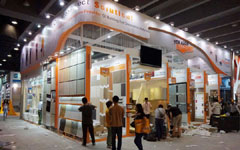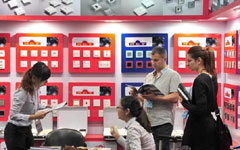In general, higher-value Chinese exporters are finding themselves more immune than low-cost manufacturers from such things as weak demand, exchange-rate fluctuations and rising costs.
Bigger companies are feeling more confident in targeting businesses with expertise in specialized components and high-tech materials, fields where US and European companies normally occupy strong positions.
|
 |
|
 |
Guangdong-based appliances provider Galanz Group is making forays into Bluetooth-enabled microwave ovens as part of its strategy to enter US households.
"One may find one Galanz microwave in every three US families. We are not just making it big, we are making it fabulous," said Wang Changyin, general manager of Galanz who oversees home appliances business units.
To achieve that goal, Galanz has introduced 52 automated production lines, which have enhanced productivity by 2 percent.
Given the mature IT infrastructure in developed markets, Galanz has come up with the idea to make all microwave ovens interconnected by Bluetooth so they can be deployed as masters to control the transmitting power levels of all other Bluetooth communication units in the vicinity.
Consistent with the government's strategy to move up the value chain and improve the industrial structure, China's small-cap firms, mostly low value-added manufacturers, are pushing themselves to upgrade in a bid to weather the economic storm.
Guangdong Jinli Electrical Appliance Co Ltd, which mass-produces lamp switches, is repositioning itself in the LED sector after being hard-hit by the current trade deficit.
"We have been bleeding money to combat an inflating yuan and constantly rocketing expenditures, which have surged almost 20 percent in the past two years," said Zhang Yingli, head of international sales.
